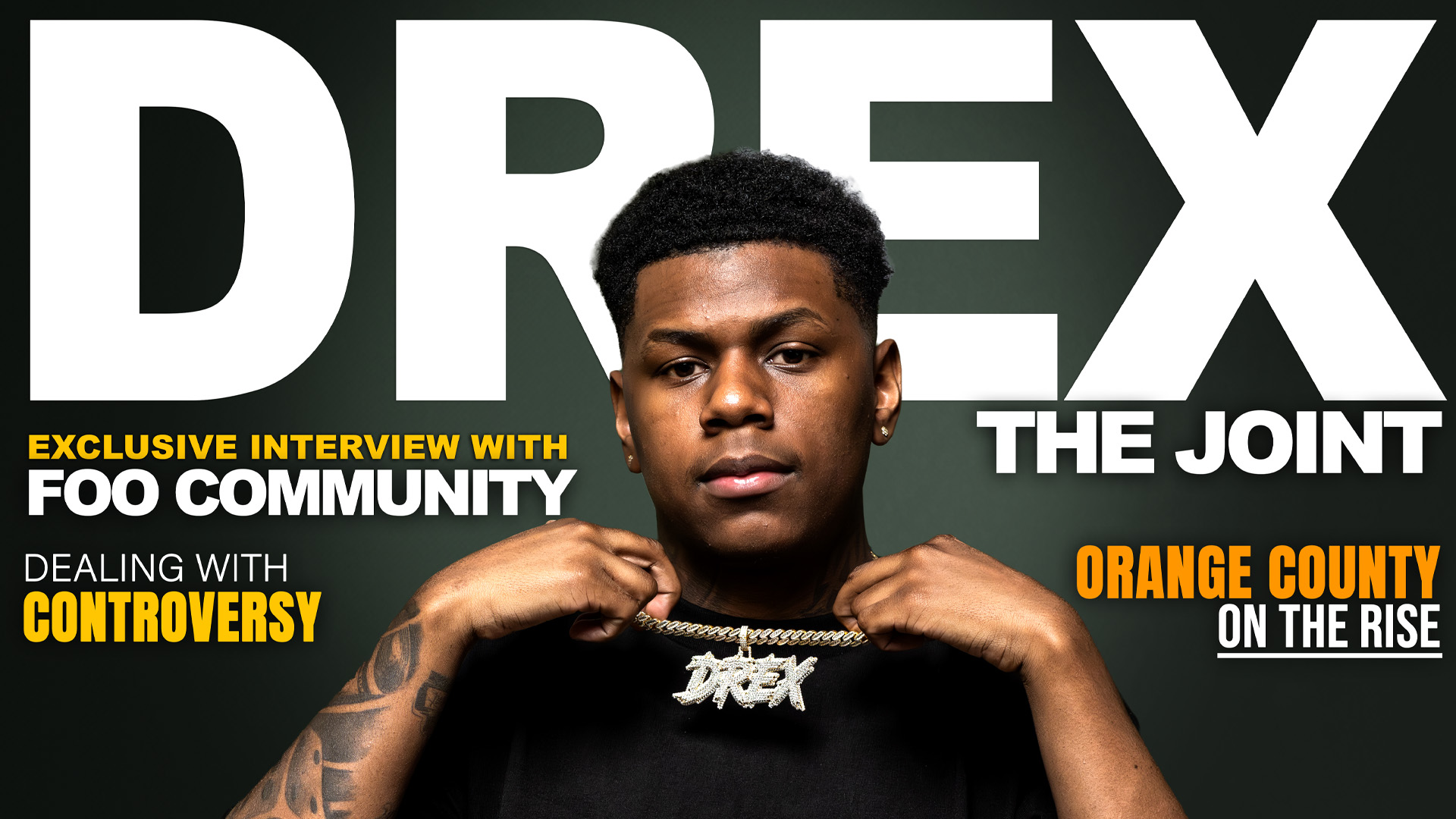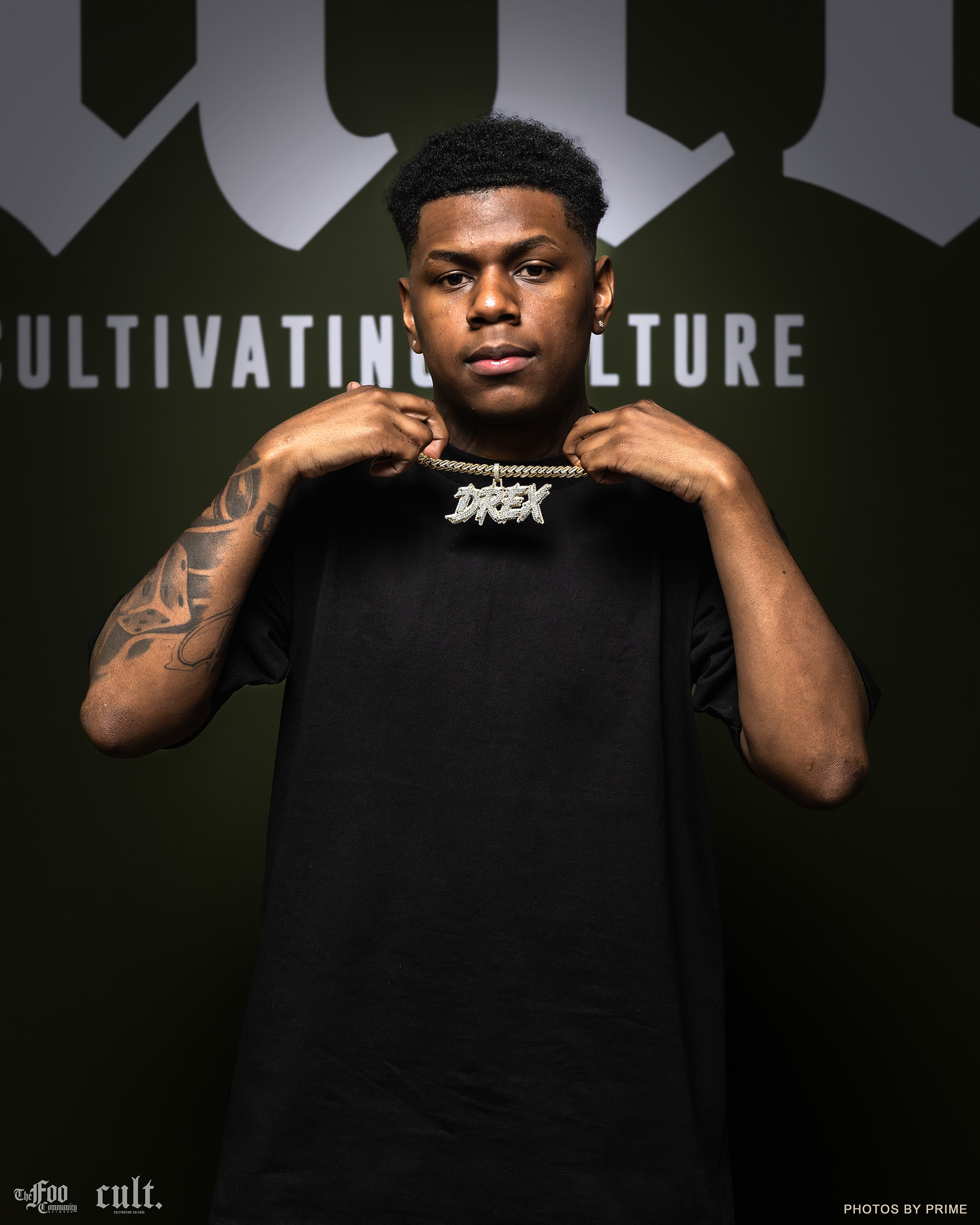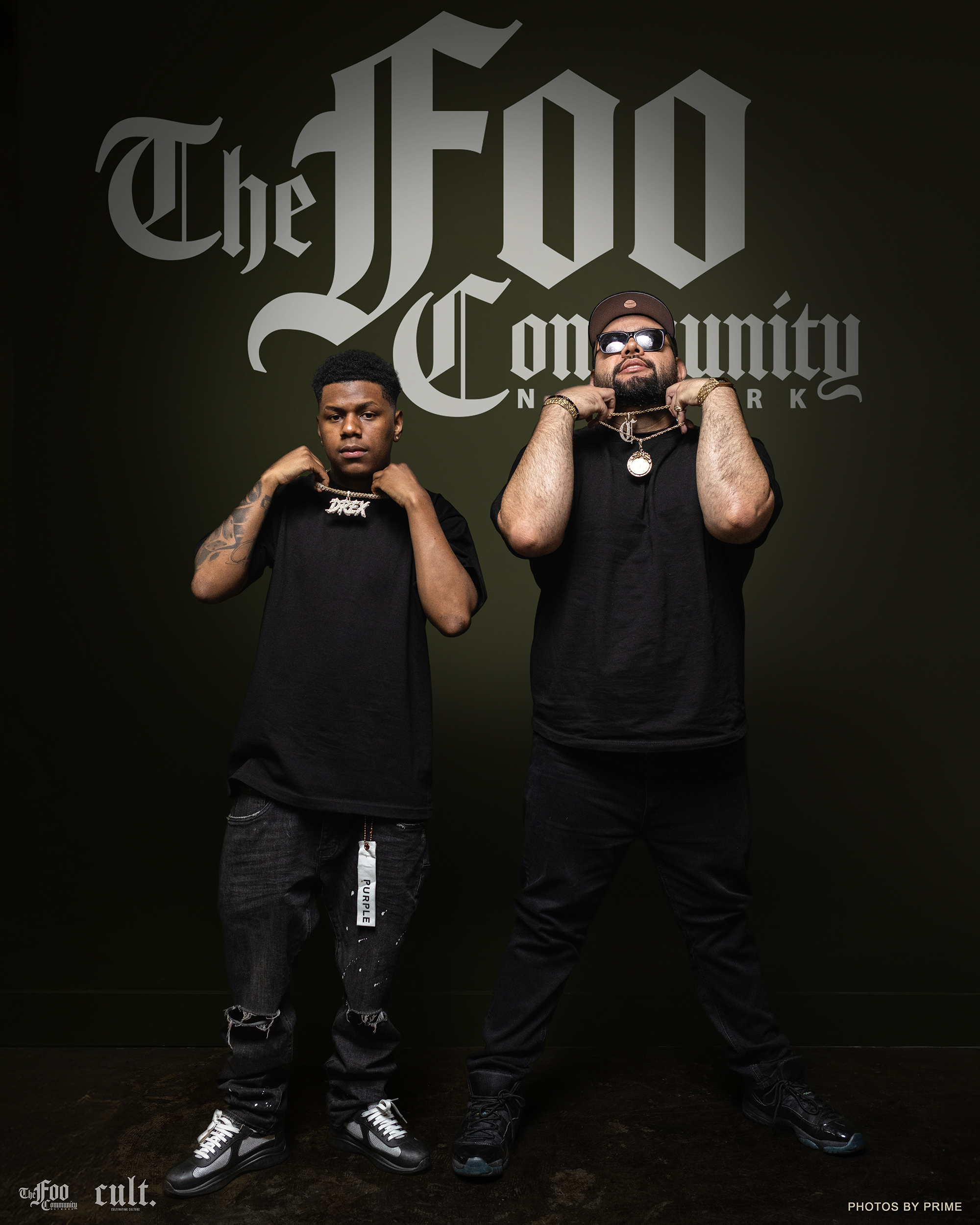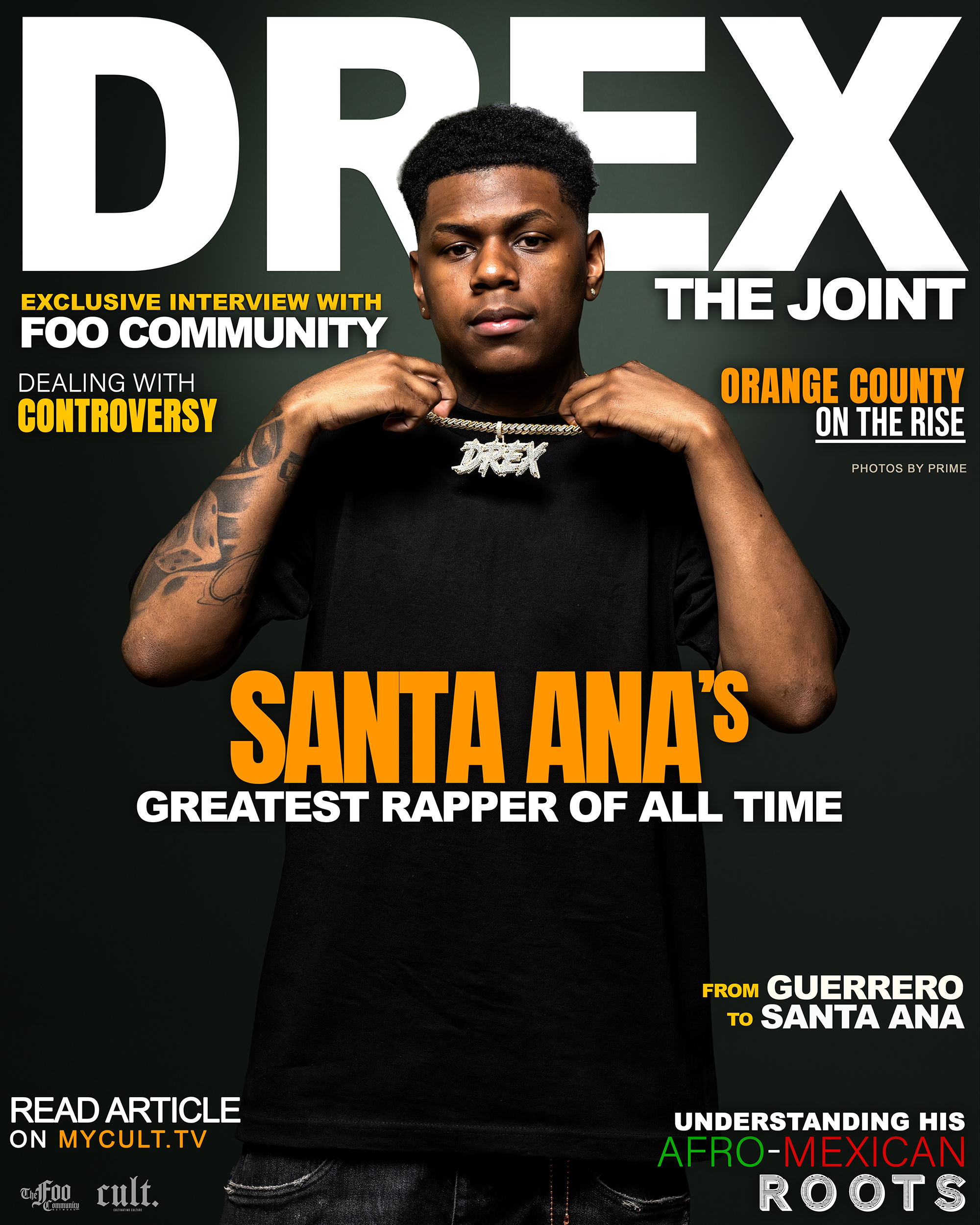
In the debut episode of The Foo Community Show, rising rapper DrexTheJoint pulled up with unfiltered energy and a message for the culture. At just 19, the Santa Ana native has already made major waves most notably as one of the first Mexican American rappers to land an interview with DJ Akademiks. But according to Drex, he hasn’t had time to process the success. “Everything hit me so quick,” he says. “I didn’t even get a chance to soak it all in.”
Throughout the conversation, Drex makes one thing clear he takes pride in where he's from. While others might falsely claim L.A. for the clout, he stands firm on repping Orange County. “I’m from Santa Ana I got that tatted on my neck,” he says. The rapper breaks down how North OC is often misunderstood, reminding viewers that cities like Anaheim, Garden Grove, and Santana have culture, struggles, and stories that deserve to be told.

The interview also dives deep into Drex’s personal background, including his Afro-Mexican identity and reconnection with his older brother Moreno, who was raised in Mexico. Music became the bridge between them, and the bond runs deeper than blood. “We always knew we were brothers,” Drex says, “but the music brought us even closer.” It’s a rare, powerful moment of vulnerability that adds another layer to the rising star.
Despite dealing with internet drama and hood rumors, Drex makes it clear he’s not caught up in the politics. “I’m humble I don’t act too hard. But I’m really from here,” he says. That humility and authenticity extend into his music, too. He reflects on his viral single “Why,” which helped expand his audience beyond street rap. Now, he’s aiming to break out of the “gangster rapper” box entirely and build a more versatile sound that reaches beyond California.

From performing at Rolling Loud with Rowdy Racks to shutting down false narratives online, DrexTheJoint is carving his own path one built on pride, pain, and realness. With a loyal fanbase, expanding catalog, and undeniable charisma, Drex isn’t just putting on for Santa Ana he’s changing the way Mexican American artists are seen in hip-hop. This is only the beginning.

